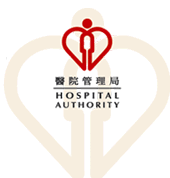
Colleagues' efforts in response to the human swine flu (HSI) threat have been outstanding. At the time of writing this message (5 August) we have around 4,700 confirmed HSI cases in Hong Kong, with one death (and two probable), and only five people in intensive care. If we were following the world trend, there would be 18 deaths now and many, many more in Intensive Care Units.
I'm sure your hard work has contributed much to this outcome so far. Early, the hard work fell on the colleagues of the Isolation Wards and the Accident & Emergency Departments (AEDs), which slowed the spread of the virus, and gave us time to prepare our response for when it became widespread. These colleagues are still working hard to test and treat.
The Central Committee on Infectious Disease and Emergency Response (CCIDER) is the group of senior clinicians responsible for our policy and response. They quickly formulated the response and protocols for treatment and testing and tracing. These have been modified as we understand more about who may contract the virus and how the virus affects different groups.
The Designated Flu Clinics (DFCs) are now the front-line defence, and they have been very effective. It seems that our best chance of reducing death and serious illnesses is to give anti-viral treatment early. We cannot give anti-virals to all because of the possibility of adverse effect and resistance, so we must target those at most risk, as decided by the CCIDER's clinical experts.
The DFCs are doing a great job assessing, providing treatment, and referring when necessary.
I have to mention also the pathology colleagues who have implemented the new PCR test so quickly. Many are working long hours to get the results back as quickly as possible.
We have included HA staff as a priority group for receiving Tamiflu and testing. This is intended to keep our staff safe and healthy so that we have an adequate workforce to keep responding.
Many others have contributed to this team effort: the nurses who have taken the extra workload as their colleagues are transferred to the isolation wards; the Head Office colleagues who have planned and organised, including the MICC which operates 24/7 with very few staff; and many more.
The team effort has extended to the Food and Health Bureau and the Department of Health. It is so encouraging to see all parties working smoothly, and gives me confidence for the future should we encounter other infectious disease outbreaks like avian flu.
We still have a lot of work to do. The Influenza A(H1N1) virus remains very dangerous to some people, especially those young and middle-aged people who should not normally become seriously ill from a normal flu virus. This is happening amidst an increasing number of H3N2 reported cases. So we must keep up our efforts. We must guard against outbreaks within our hospitals, either through patients or visitors. Masks and hand hygiene are the best protection.
Finally, please be vigilant with your own health, and with your family and friends. If you have flu-like symptoms, please seek early treatment from the DFCs or AEDs where you will be assessed and offered Tamiflu if you meet the clinical criteria (including fever and cough). Please continue to be careful.
|

